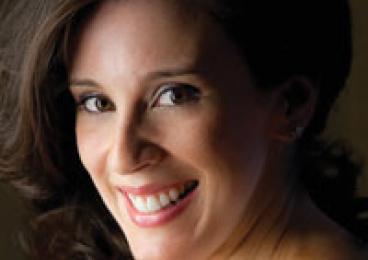

“Hilary, you know you shouldn’t wear high heels.”
No, I didn’t know.
“Believe it or not, we’ve been known to talk about female job candidates’ shoes in faculty meetings. You should go with practical shoes.”
Until that moment, I had thought that my nude Kate Spade pumps were practical. As anyone who has been through any sort of extensive job search knows, you have a go-to power suit. My power suit’s pants had been hemmed so they could be worn perfectly with the aforementioned accompanying power, yet now impractical, pumps.
Stunned, I stammered, “Got it, thanks,” before hanging up with my friend, a recently tenured professor in the sociology department I would be flying out to visit the next day to interview for an assistant professorship.
I tossed a pair of flat black boots into my suitcase — and realized that maybe this academic thing wasn’t for me.
Of course, it wasn’t the shoes themselves that sent me over the edge (though they were gorgeous). In a way, this had been a long time coming.
Like most Ph.D. candidates, I had worked hard in school and was good at it. School and learning truly were my “thing” — and my main extracurricular activity. Some kids had basketball, others the flute; I had my books. A lot of my self-identity was wrapped up in this learning “thing.”
In college, while my friends prepared for careers in investment banking, management consulting, and law, I took my GREs and applied for fellowships. I was on the academic track, and not a small part of the allure was that grad school and academia offered a clear path to how my professional life would unfold for the next few decades: a tenure-track position as an assistant professor, then associate and full professor, and finally, an endowed chair.
When I arrived at Princeton in the fall of 2003, I knew what I had to do: Write an outstanding dissertation in sociology, get a stellar job, get tenure. And on the surface I seemed to be excelling — I received some great fellowships, and I had fantastic advisers and female mentors, like Viviana Zelizer, Katherine Newman, and Sara McLanahan.
And yet, something wasn’t quite right.
During my time in Wallace Hall, I began to realize that sociology wasn’t always about engagement with the wider world and people’s everyday lives. Instead, particularly for graduate students, it seemed to be about publishing articles in a narrow range of journals, and those articles often tended to be about arcane topics. (This doesn’t apply to all tenured faculty but, well, they have tenure.)
The things I like to study, however, tend to be the opposite of arcane. I wrote a dissertation on why families with elementary-school-age kids enroll them in competitive after-school activities like chess, dance, and soccer. This was pre-Tiger Mom Amy Chua. I wrote my senior thesis in college on why mothers enroll their young daughters in child beauty pageants. This was pre-Toddlers & Tiaras. I wanted to understand what people care about far from the ivory tower, and what matters in their everyday lives — and how I could help them improve those daily experiences.
But in academia, this openness and desire to write for a broader audience often is seen as suspect. And if your focus is on getting tenure, anything other than “serious” academic publications is a distraction. Six years after starting my Ph.D., I still was more interested in the broad topics and a more mainstream audience. Nonetheless, I continued on the academic path, landing a two-year postdoctoral fellowship.
During those two years, I married a fellow academic, and things became even murkier — and then, suddenly, much clearer. Like many couples in various professions, we were struggling to balance the careers of two ambitious people. In the academic job search, whose job was going to take precedence location-wise? Or, to put it more bluntly, who was going to give?
And the shoes? An analogy, of course, but I realized that I was heading down a path that potentially would stifle the real me — someone who loves pop culture and high heels. And so, I had my epiphany. I no longer wanted to be an academic. I wanted to wear fabulous high-heel shoes all the time, especially after wearing those boring flat, black boots to the interview, having two professors comment on them, and still not getting the job.
Mostly, now, I feel relief. I’m pursuing writing for a more general audience, publishing articles in magazines and newspapers and appearing as a “talking head” on local news shows when the subject is childhood and competition. I have a literary agent and am completing a book. I love hearing stories about scientists who left the lab to pursue cooking, or attorneys who left the law for literary pursuits.
The world didn’t end once I no longer received university computing support, lost my “.edu” email address, and stopped adding to the “under review” section of my CV. In fact, the world opened up as I embraced the opportunity to blog and dabble in social media, and I discovered that it felt good when more than a couple of hundred people read my writings. While my formal school days may be over, I’m clearly not done learning. And I do hope that learning can continue to be my “thing” for many decades to come.

Hilary Levey Friedman *09 is a freelance writer and sociologist in Boston.
